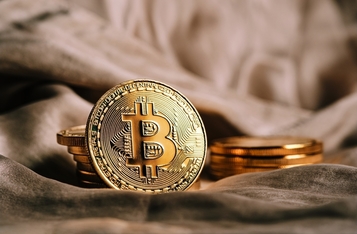What Coinbase CEO’s Crypto Regulation Rumors Mean for Bitcoin if Pushed by US Treasury?
Brian Armstrong, CEO of Coinbase, warned that the Trump Administration may be targeting Bitcoin on its way out of office through regulation, but what impact could it have?

Brian Armstrong, the CEO of leading US crypto exchange Coinbase, warned that the Trump Administration may be targeting Bitcoin on its way out of office through crypto wallet regulation. Should the rumors be true, what could the regulation mean for Bitcoin and the BTC price?

Coinbase CEO Brian Armstrong dropped a bombshell on the Bitcoin community yesterday when he shared on Twitter that he had heard rumors of new self-hosted crypto wallet regulations due to be rushed through by the exiting Trump administration and the United States Treasury.
While the exact effect the Coinbase CEO’s announcement had on the crypto market is unclear, Armstrong’s Twitter post coincided with a drastic BTC price plunge from around $18,600 to $16,100 before the price recovered to consolidate around the $17,000 level.
Armstrong alleges that the impending crypto wallet regulation will require all digital asset exchanges to prove users own the address they want to withdraw to which he believes will have an extremely negative effect on the crypto space.
The Coinbase CEO goes on to explain that while the rumored process sounds like a reasonable idea on the surface, “it is a bad idea in practice” because it is often impractical to collect identifying information on a recipient in the crypto-economy.
Armstrong specifically highlighted how the regulation could broaden the growing divide between how Bitcoin is treated in the United States by regulators as opposed to Europe and Asia.
The Coinbase CEO wrote:
“Given these barriers, we’re likely to see fewer transactions from crypto financial institutions to self-hosted wallets. This would effectively create a walled garden for crypto financial services in the U.S., cutting us off from innovation happening in the rest of the world.”
Reportedly, Coinbase and along with several companies and prominent investors in the crypto space sent a joint letter to the US Treasury to share their concerns about this potential regulatory measure and ask for further clarification.
What does it mean for Bitcoin?
As stated above, the Bitcoin price underwent a huge correction which coincided almost immediately with the Coinbase CEO’s warning—the BTC price is $17,285 at the time of writing. But what long term effects could the crypto wallet requirements have on Bitcoin if they come into play?
Should Coinbase CEO Armstrong’s fears be realized, the Trump Administration’s parting crypto wallet regulation many expect it would have widespread impact for any crypto services that use a non-custodial wallet.
However, debate raged on Twitter as to the tangible effects on the crypto market in the long run, with some analysts arguing that further regulation is what macro buyers are asking for as Bitcoin becomes more widely accepted as a safe haven hedge in the mainstream markets.
Managing partner at Multicoin Capital, Kyle Samani says argued:
“For the current BTC bull market (next 12-36 months), it doesn’t matter. Why? Next wave of buyers—macro buyers want regulation. For them, 21M cap is a feature, and censorship resistance is (kind of) a bug They don’t want self custody. Just inflation hedge.”
Samani was joined by others in the space, who re-stated that Bitcoin is regarded as much more of an inflation hedge as opposed to a form of money that can bypass all government barriers.
In the world of crypto and Bitcoin, the investor base is made up of a large libertarian contingent and BTC is seen by many as a rebellion against a monolithic central bank financial system.
Prominent podcaster and Bitcoin Twitter personality Peter McCormack chimed into the arguments stating, “If you don’t need censorship resistance you don’t need decentralization,” he later explained, “If you don’t have censorship resistance then you don’t have seizure resistance, therefore your hedge isn’t guaranteed. You might as well have a promise in a spreadsheet.”
Image source: Shutterstock

.jpg)
